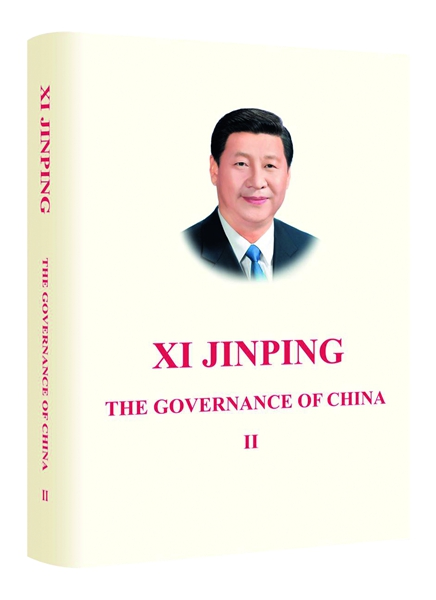The Governance of China (Volume II)
Author: Xi Jinping
Paperback, 619 pages
Published by Foreign Languages Press

THE second volume of Chinese President Xi Jinping’s book, Xi Jinping: The Governance of China, contains 99 speeches, conversations, instructions, and letters of Xi between 2014 to 2017. It is a book that can be read as a vade mecum for global leaders, a description of the political philosophy that underpins one of the most vibrant nations on this planet, and a practical work that one is obliged to engage with in the new era.
A Vade Mecum for Global Leaders
The structure of this book appears to be properly set out in terms of subjects, which cover such aspects as society, culture, world politics, and the environment issue.
“Development” is anchored into the well-being of people in the spirit of the most progressive social sciences; supremacy of the supply-side economy is advocated along with the commitment of the administration, which must be prioritized when large parts of the world are now reporting jobless growth or no growth at all to fund the necessary social transformations.
Culture is not a reified array of practices but echoes in “cultural confidence” from the people during an age where diversity is to be cherished in the world.
Compared to Xi’s first volume of The Governance of China, world politics occupies a large part of his writings, and reading them feels somehow premonitory of the current difficulties in the society of nations.
Under the heading “Beautiful China,” the book covers various aspects of modern ecology. It acknowledges that “moderate prosperity” can be a realistic aspiration for China in its current situation. Ecological security is also a forward-looking dimension to national stability and the world order.
An Update on the Chinese Political Philosophy
The two volumes of The Governance of China chronologically succeed an earlier book of Xi Jinping, which was a collection of his essays written when he was a provincial leader in Zhejiang Province. In that book, he gave minute and detailed examples of how local leaders should handle the realities of what this current book calls “the productive forces.” From the Zhejiang book, Western observers of China may grasp the material foundations of the “new era,” the era that has been theorized and become central to the 40-odd-page report to the 19th National Congress of the Communist Party of China (CPC) delivered in 2017.
This second volume sheds light on the impact of this tectonic shift that is the “new era” on China’s desired contribution to the world community.
It is no coincidence that the end of the collection of speeches coincides with the famous “Davos speech” that Xi Jinping gave three years ago and that made world leaders reckon with a China that was not just trying to catch up technologically, but a China that wanted to engage in international aid and rebuilding the international governance system. The speech was not just emphasizing “Chinese characteristics” but expressed a clear acknowledgement of and even praise for a world that sees all nations as having equal rights and duties on the Charter of the United Nations, and delivered a distinct push for the declaration announced on the Bandung Conference in 1955 to be accorded its rightful place in the international order.
China’s Modernization in the New Era
This book is a very clear, straight statement of what the CPC today is seeking for itself and for its contribution to the world.
Here Xi Jinping frames his wishes for “China’s diplomacy as a major country” in three-pointed but relatively modest texts, and also lays out China’s ongoing praxis in “peaceful development and cooperation with other countries.”
Policies are nothing without tools. The book patiently and repeatedly features texts on the much talked-about Belt & Road Initiative (BRI). It is for the informed public to appreciate that China has been able to respond to the feedback of recipient countries, and the 2nd Belt and Road Forum for International Cooperation clearly specified the need for the BRI to become environmentally sustainable.
Two aspects of the Chinese society and the CPC’s practice have now been made somewhat more accessible, and will certainly evoke further awe and contemplation, as well as study in the West – the rise of grassroots democracy and the centrality of the leadership, both of which are responsible for China’s modernization in the new era.

Dr. JOËL RUET is president of The Bridge Tank.